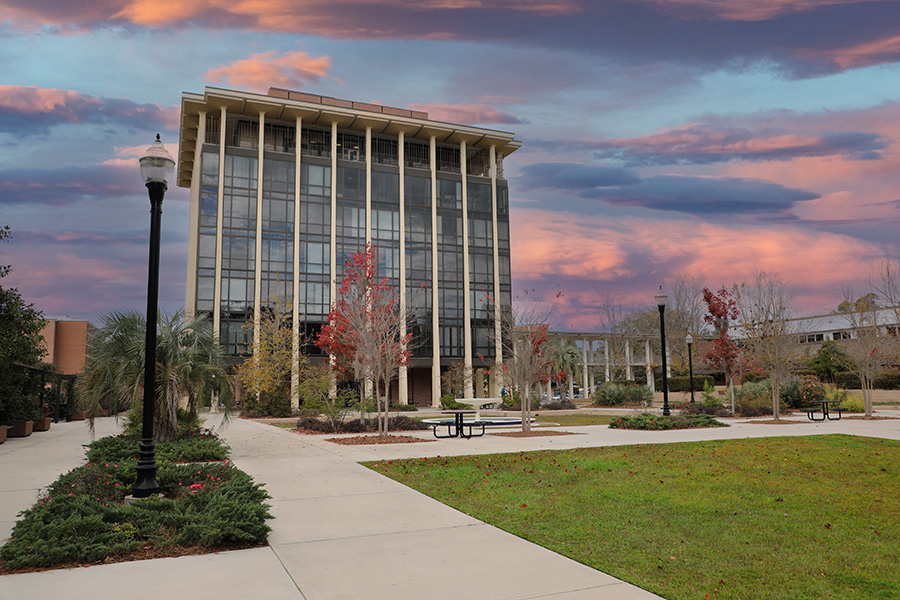
The FSU Department of Physics fosters an innovative, collaborative atmosphere that houses groundbreaking research programs and expert faculty, equipping graduates for successful careers in the sciences and related fields.
The department hosts over 300 undergraduate and graduate students. The undergraduate program develops students' foundational research and critical-thinking skills. Undergraduates can major in physics, physics and astrophysics, or physical science; they can also minor in physics or astrophysics. The Ph.D. program highlights research and ingenuity. Doctoral candidates can choose to specialize in a wide variety of topics, including astrophysics, biophysics, atomic physics, condensed matter physics, high-energy physics and nuclear theory.
With its excellent faculty, broad range of research areas and advanced facilities, students in the FSU Department of Physics receives unparalleled educational and research opportunities.
Research Areas
The department's more than 60 faculty members specialize in a variety of fields of research. Programs are well-funded, varied, and provide a breadth of learning and teaching experiences for students.
Stellar Facilities
The department is home to state-of-the-art, experimental facilities to support faculty and student research projects, including the John D. Fox Superconducting Linear Accelerator Laboratory and the National Science Foundation-funded, FSU-headquartered National High Magnetic Field Laboratory (NHMFL). The experimental nuclear physics group runs the John D. Fox Nuclear Accelerator Laboratory, which explores questions at the intersection of nuclear physics and astrophysics. The NHMFL, also called the MagLab, is the world's largest magnetic field laboratory and draws scientists from across the globe to conduct research.
Public Outreach
The department enjoys bringing the wonders of science to the Tallahassee community. Two of its most popular events are the Circus of Physics and Saturday Morning Physics programs, which introduce children and adults alike to FSU scientists and topics in the physical sciences. These events are free for participants. Other events include the Dirac Lectures, featuring prominent scholars speaking on physics topics of interest, and programming at the MagLab.

